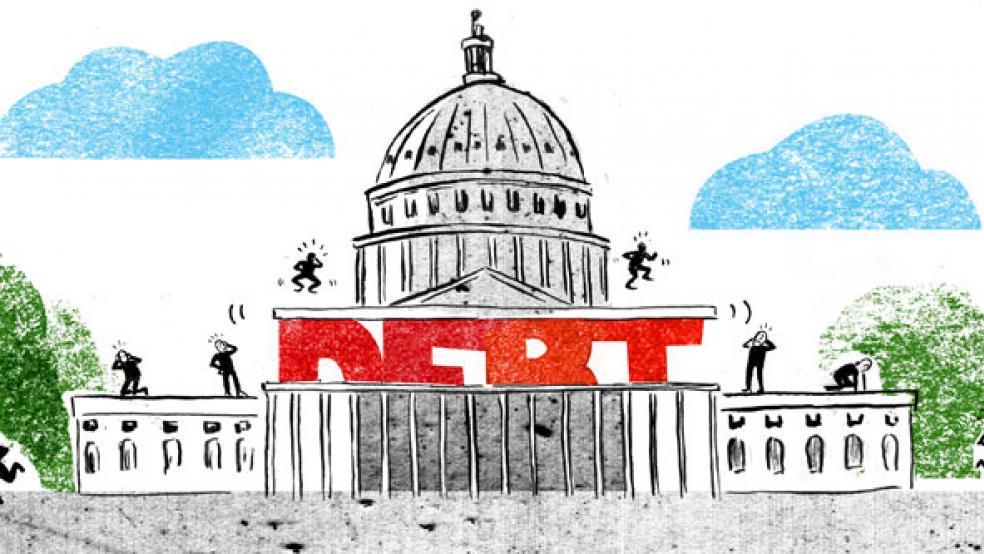GOP and Democratic negotiators struck a final deal over the weekend for a roughly $1.1 trillion spending package to carry the government through the remainder of the fiscal year, a plan that includes a substantial boost in funding for defense and homeland security but no money for President Trump’s plan to build a wall along the southern border with Mexico.
The spending plan -- the first significant bipartisan agreement since Trump took office in late January -- eliminates the threat of another government shutdown. It will also give GOP leaders breathing room to focus on other priorities, including their push to repeal and replace the Affordable Care Act and to begin a debate on Trump’s call for major corporate and individual tax cuts.
Related: Renewed Fight Over Obamacare Could Prompt Government Shutdown
Congressional Republicans achieved many of their goals in beefing up defense spending levels by $25 billion over fiscal 2016 enacted levels and $1.5 billion more for border security. However, Democratic leaders extracted many important concessions as well, including thwarting major cuts in social programs and medical research and temporarily blocking Trump’s drive to build a border wall.
Trump last week abandoned his attempt to include billions of dollars in the spending package for his controversial wall project, and the new border-security funding in the bipartisan deal includes strict limitations that the administration can only use the money for investment in technology and repairs to existing fencing and infrastructure.
Democratic leaders including Senate Minority Leader Chuck Schumer of New York and House Minority Leader Nancy Pelosi of California had vowed to block a final deal –- and risk another government shutdown –- if Republicans insisted on including a down payment on the wall in the final bill.
Democratic votes will be needed in both chambers to pass the final agreement this week that will last through Sept. 30, the end of the current fiscal year. Schumer and Pelosi were able to extract numerous other concessions from the Republicans and block scores of unrelated policy amendments that would have reduced environmental spending and scaled back financial regulations on Wall Street.
Related: Republicans Are Trying Again on Obamacare Repeal: Here’s the New Plan
Among the Democrats’ other apparent victories: Inclusion of $295 million to help Puerto Rico continue to make payments to Medicaid; $100 million to combat opioid addiction; increases in energy and science funding that Trump sought to cut, and continued funding for Planned Parenthood through September.
Under the final agreement, overall spending on labor, health, human services and education would be tightened, but it would include $2 billion above the fiscal 2016 levels for the National Institutes of Health (NIH), $22 million more for the Center for Disease Control and Prevention, and $15 million for Job Corps., according to the House Appropriations Committee.
The agreement also includes $61 million to reimburse local law enforcement agencies for the steadily mounting cost of protecting Trump and his family during their frequent travels to residences in Florida and New York on weekends.
Schumer issued a statement Sunday night saying, “This agreement is a good agreement for the American people and takes the threat of a government shutdown off the table.”
Related: Trump Calls Schumer an Incompetent ‘Fool’ Just When Need Him the Most
“The bill ensures taxpayer dollars aren’t used to fund an ineffective border wall, excludes poison pill riders and increases investments in programs that the middle class relies on, like medical research, education and infrastructure.”
House Appropriations Committee chair Rodney Frelinghuysen (R-NJ) said the final agreement “is a solid bill that reflects our common values and that will help move our nation forward.”





